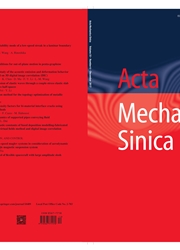

 中文摘要:
中文摘要:
增长算法是为构造 Delaunay 三角测量(DT ) 的最流行的过程之一。然而,点插入顺序在为 DT 的构造需要的工作的数量上有大影响。它影响时间因为两个削尖地点和结构更改,和因此三角测量算法的全面计算时间。在这份报纸,一个简单确定的插入序列为更好的性能与一些次要的修正在一棵 Kd 树上基于 breadth-first-search 被建议。把父母节点用作搜索提示,建议插入顺序证明比顺序和偏导的使随机化的插入订的 Hilbert 曲线(元气充沛) 更快、更稳定,特别为在大量基准例子上的不一致的点分布。
 英文摘要:
英文摘要:
Incremental algorithm is one of the most popular procedures for constructing Delaunay triangulations (DTs). However, the point insertion sequence has a great impact on the amount of work needed for the construction of DTs. It affects the time for both point location and structure update, and hence the overall computational time of the triangulation algorithm. In this paper, a simple deterministic insertion sequence is proposed based on the breadth-first-search on a Kd-tree with some minor modifications for better performance. Using parent nodes as search-hints, the proposed insertion sequence proves to be faster and more stable than the Hilbert curve order and biased randomized insertion order (BRIO), especially for non-uniform point distributions over a wide range of benchmark examples.
 同期刊论文项目
同期刊论文项目
 同项目期刊论文
同项目期刊论文
 期刊信息
期刊信息
